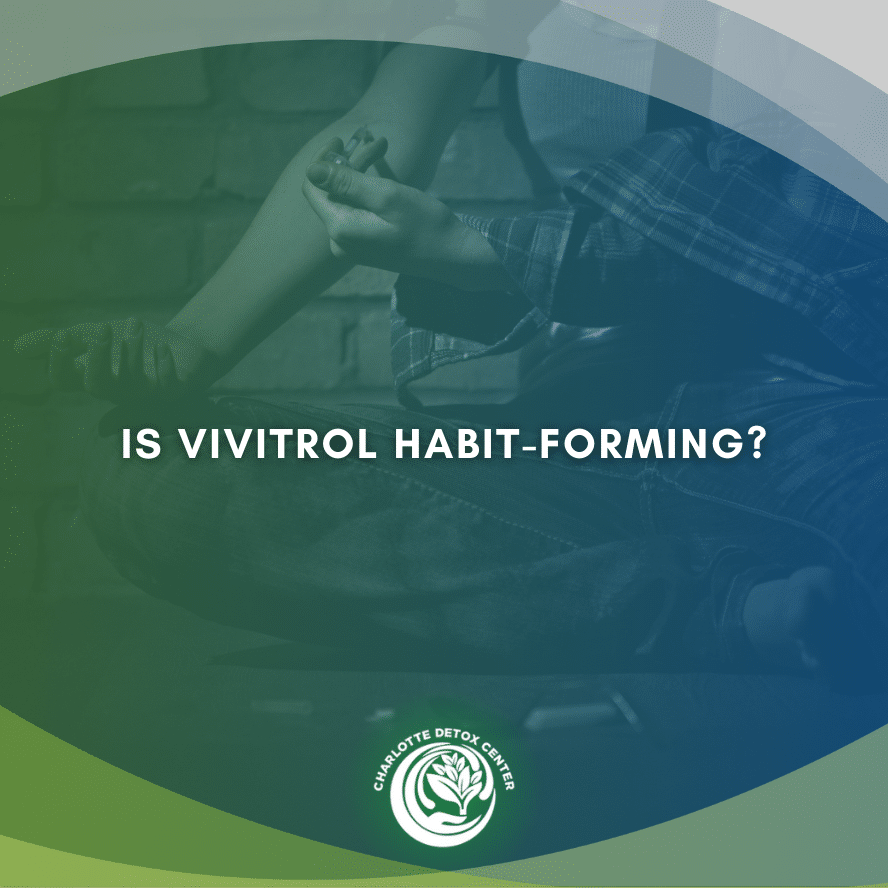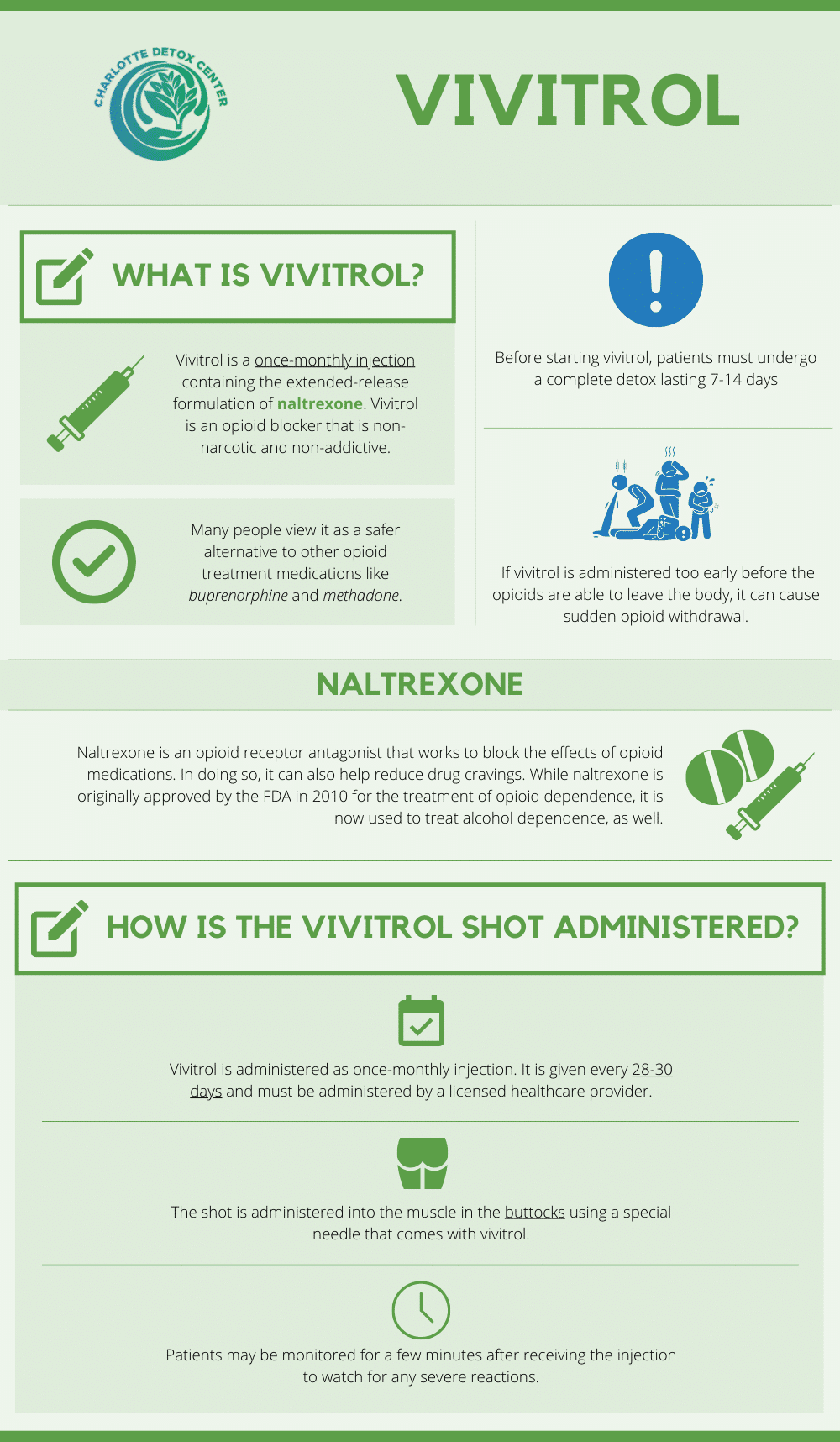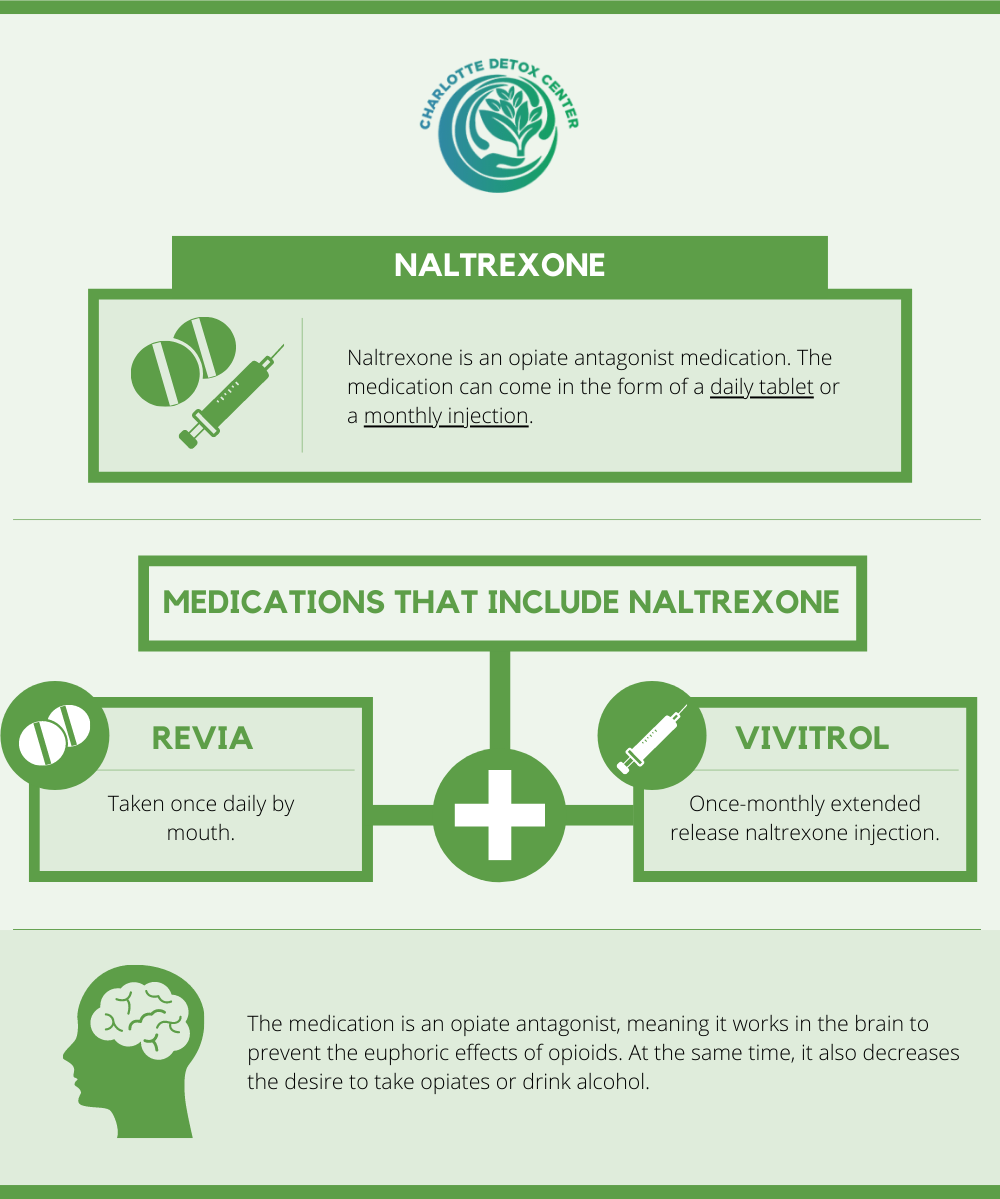Is Vivitrol Habit-Forming?

Medically Verified: 2/1/24
Medical Reviewer
Chief Editor

All of the information on this page has been reviewed and verified by a certified addiction professional.
Opioid abuse in America is at an all-time high, and more Americans than ever are using alcohol to cope with the devastating effects of the pandemic. Unfortunately, even after seeking treatment, both opioid and alcohol use disorders are associated with a high risk of relapse and overdose. The most effective treatment programs use a multidisciplinary approach combining therapy, counseling, and medications to provide individuals with a whole-patient approach.
The problem is many opioid and alcohol treatment medications are met with controversy because they have the potential to be habit-forming or physically addictive. Vivitrol, on the other hand, is a once-monthly FDA-approved injection that is used to treat opioid and alcohol use disorders. The best part is Vivitrol is not considered habit-forming nor is it physically addictive.
What is Vivitrol?
Vivitrol is a brand name extended-release formulation of naltrexone. It was originally approved by the Food and Drug Administration (FDA) in 2006 for the treatment of alcohol dependence. However, in 2010, it was also granted approval for treating opioid dependence. Manufacturers of the medication claim it is non-addictive and non-narcotic.[1]
Vivitrol helps balance brain chemistry in addicted individuals and reduces the intensity of drug and alcohol cravings. The medication has been shown to reduce rates of relapse and improve rates of treatment completion.
Patients must stay sober from opioids and other substances for at least 7-10 days before starting Vivitrol. Vivitrol is administered as an intramuscular shot that is given once each month. The injection has minimal side effects, with injection site reactions being the most common, and is considered a very safe treatment medication.
The Vivitrol shot is a very attractive option for people who are worried about taking another opioid replacement medication like Suboxone and methadone. Unlike these opioid medications, Vivitrol (naltrexone) is not habit-forming.
Vivitrol, like other medications used in medication-assisted treatment (MAT), is intended to be used in combination with behavioral therapy and individualized counseling.

How Does Naltrexone Work?
Naltrexone is an opiate antagonist that is approved by the FDA to treat opioid and alcohol dependence. It comes in the form of a pill (ReVia) that is taken daily or an extended-release injection (Vivitrol).
Opioid receptor antagonists work by blocking opioid receptors in the central nervous system. By blocking these receptors, they also occupy them and prevent individuals from feeling the euphoric effects of opioids.[2] Naltrexone is used in opioid and alcohol treatment to prevent drug and alcohol cravings because it reduces the desire to use substances.
Naltrexone works differently than medications like methadone and buprenorphine. Methadone and buprenorphine activate opioid receptors to suppress cravings. However, activating these receptors is what causes physical dependence. People who take methadone and buprenorphine, even as prescribed, may develop a physical dependence on their medications. As a result, they must slowly taper off of their medications and face the possibility of going through withdrawal.
Naltrexone, on the other hand, is non-narcotic and not addictive. Since naltrexone is the only active ingredient in Vivitrol, the Vivitrol shot is not considered to be habit-forming.

Can You Get Addicted to Vivitrol (Naltrexone)?
Vivitrol is a non-addictive substance with a very low risk for abuse.[3] The injection does not cause euphoria, feelings of well-being, or a “high.” In addition, the Vivitrol shot can only be administered by a licensed professional in a medical setting. You won’t find Vivitrol on the streets, so it is not highly accessible to those to whom it is not prescribed.
Vivitrol is considered safe, effective, and not habit-forming by medical professionals and addiction experts alike.
Will You Have Withdrawal Symptoms After Stopping Vivitrol?
Since Vivitrol (naltrexone) is not physically addictive, you won’t experience withdrawal symptoms when you stop taking Vivitrol. You also will not have to slowly taper your dose down. Instead, you will simply work with your healthcare provider to determine when it is appropriate for you to stop taking Vivitrol.
With that being said, there are risks associated with stopping Vivitrol treatment. Vivitrol works by reducing drug cravings, and if the medication is stopped too early or before a person is fully equipped with adequate coping skills, individuals could relapse. Unfortunately, opioid relapse is extremely dangerous after periods of sobriety. This is because spending time sober reduces your tolerance level, so it takes a lower dose to feel the effects and overdose than it did before a person starts taking Vivitrol.
As a result, patients should be closely monitored when stopping Vivitrol. They should also be actively participating in a comprehensive treatment program that teaches the tools required to achieve long-term recovery. According to SAMHSA, a “Risk Evaluation and Mitigation Strategy (REMS) is required for the long-acting injectable formulation to ensure that the benefits of the drug outweigh its risks.” [3]
Start Treatment With Vivitrol in Charlotte, North Carolina Today
Vivitrol is a safe, effective, and non-habit-forming medication that can help you overcome an addiction to opioids or alcohol. It is also easy to take and maintain because you don’t have to worry about taking it every day. When used in combination with counseling and behavioral therapy, Vivitrol can prevent relapse and improve your experience in rehab.
If you or a loved one are interested in starting treatment with Vivitrol in Charlotte, NC, you’ve come to the right place. Pick up the phone and call now to speak with one of our addiction specialists and learn how we can help you begin your recovery journey.
References:
